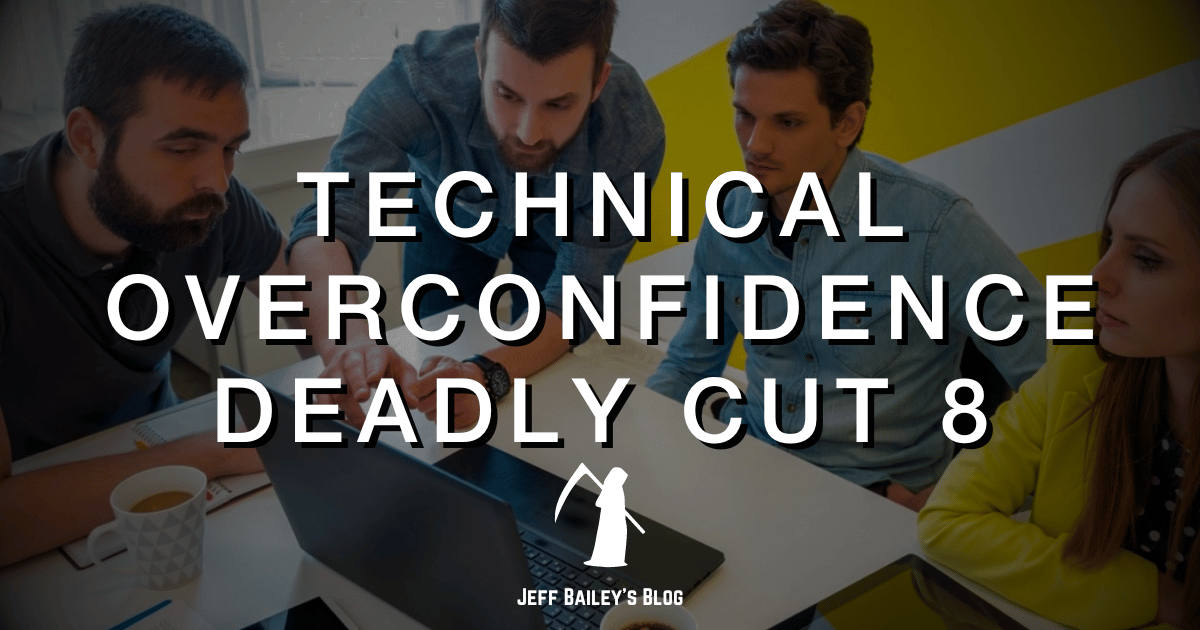Technical overconfidence has become a functional requirement in technical discussions. I used to be quiet, but now I must demonstrate profound confidence.
While developing software, my primary goal includes serving user needs. In the past, software development meant living a quiet life with few interruptions. To avoid dealing with people explicitly, I switched from technical support to software development early in my career. Oh, how the world has changed, but it’s mostly better now. There are often cost overruns in software projects because programmers still spend months coding in isolation.
Let’s return to people. They matter, and that’s why overconfident technical discussions are toxic.
An opinion that creeps into a product feature without contextual market research is a travesty. Loud people don’t make features by design; they make features with bravado masked in professionalism. This behavior neither surprises, delights, nor instills happiness except by accident. Professionals with their minds on users get a boot in the face when overconfident know-it-alls enter the chat. Mr. OverConfidence knows the average air speed of Elixir functions, whether African or European.
In response to IT professionals subjecting me to context blindness, I use measured clarifying questions. I anticipate quick counter-clarifying questions and prepare myself for them. This method is exhausting but helps steer conversations away from toxic overconfidence islands. Insecurity is at the root of this behavior, a symptom of a poisonous overconfidence culture in IT. To address the root cause, let’s inspect insecurity as a culprit.
Overconfidence leads to a toxic culture of overconfidence in IT, otherwise known as brogramming. A brogrammer feels it’s their duty to inform you about your ignorance and their superior intellect. This behavior is a red flag of insecurity flapping in the wind.
A touch of insecurity is healthy, but too much insecurity promotes overconfidence. When one believes their solution isn’t good enough, they’ll strive to improve it. I’ve found that doubt is a wellspring of creativity when balanced with knowledge, empathy, and humility.
Lest we forget, computers are only useful tools if we use them to improve human existence. Let’s measure our words, raise doubt, and improve products. As self-aware programmer communities grow, I hope they’ll positively influence IT and transform it into a welcoming environment. 🤞
